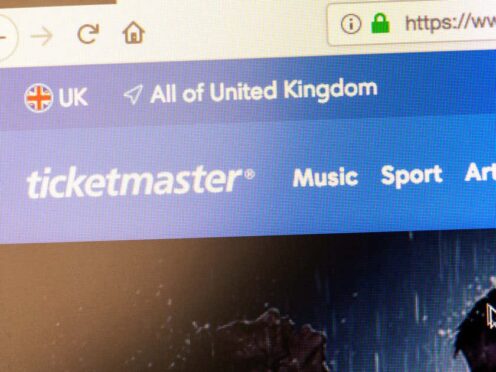Ticketmaster has been the subject of a cyber attack, with hackers allegedly stealing the personal details of more than half a billion customers, it has been reported.
The ShinyHunters hacking group is said to be demanding around £400,000 in a ransom payment to prevent the data being sold on the dark web.
According to reports, authorities in Australia and the US are engaging with Ticketmaster to understand and respond to the incident, with the hackers said to have gained access to the names, address, phone numbers and partial payments details of 560 million of the site’s customers.
Ticketmaster has not yet publicly confirmed the breach.
The online ticket sales platform, and its parent company, Live Nation, have been approached for comment.
Anthony Young, chief executive of UK cybersecurity firm Bridewell, said the incident should serve as a “wake-up call” to all firms to prioritise data protection in the face of the growing threat of cyber attacks.
“Ticketmaster reportedly falling victim to a data breach highlights the growing threat that large-scale cyber attacks pose to widely-used services,” he said.
“This breach, attributed to a hacker collective demanding a substantial six-figure ransom, signifies severe financial implications for companies.
“Bridewell’s recent research into critical national infrastructure organisations reveals that the average financial loss from ransomware attacks is nearly £300,000.
“However, the consequences extend beyond monetary loss. Operational disruption affects 42% of businesses, data loss impacts 39%, and reputational damage is a concern for 35% of those surveyed.
“Although Ticketmaster may not be classified as critical national infrastructure, the vast amount of personal data they manage globally has far-reaching implications. With an estimated 560 million people potentially affected, this is a disruptive breach and a stark reminder of the importance of fortifying cyber defences.
“It should be a wake-up call for all organisations to prioritise the protection of their data and systems against such pervasive threats. Especially high-profile organisations with a large number of users and customers, which make significant targets.”
